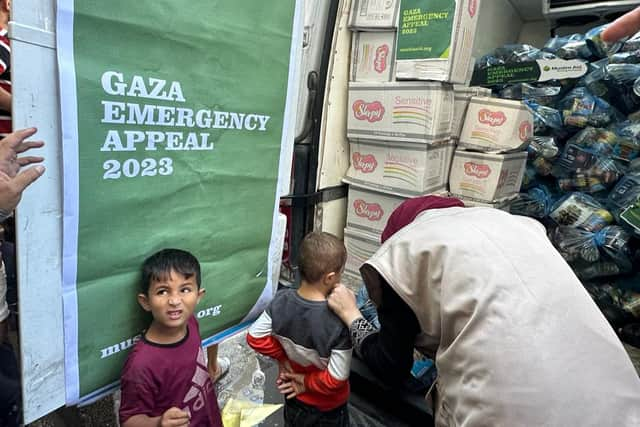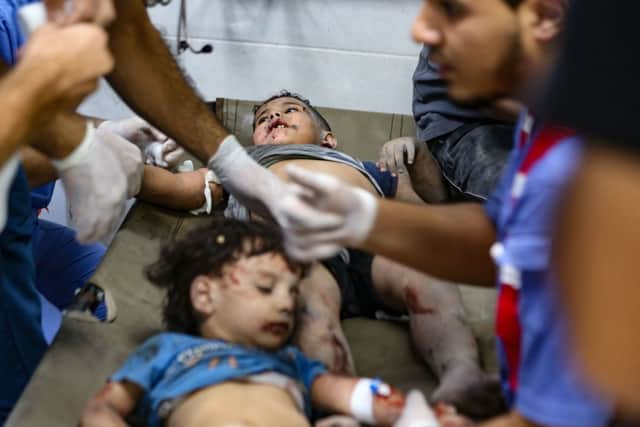Gaza: ‘There's a huge emotional toll’- British-Palestinian charity worker on supporting colleagues in war zone
and live on Freeview channel 276
Diana Alghoul and her colleagues have been working around the clock ever since the Israel-Hamas war broke out over a month ago.
The British-Palestinian charity worker has described the “huge emotional toll” the last month has had on her and her London based co-workers at Muslim Aid UK as they try to support their colleagues in Gaza.
Advertisement
Hide AdAdvertisement
Hide Ad“It has been very tough. We've lost three colleagues so far,” Ms Alghoul told LondonWorld.
“It's been frightening because on a professional level, logistically, it makes it a lot harder for us to plan our emergency response. But it's a lot more than that. These colleagues are also our friends.”
The war has also affected Ms Alghoul’s personal life. Earlier this month she found out that one of her family members in Gaza was killed through an Al-Jazeera headline.
“Communication in Gaza, it's almost impossible. My cousins in Jerusalem, they can't communicate with their friends in Gaza,” she said.
Advertisement
Hide AdAdvertisement
Hide Ad“There is no way for me personally, to check up on my family.”
According to Gaza health officials over 11,000 Palestinians have been killed since Israel’s bombardment started last month, with two-thirds of them women and children.
While some aid has been allowed to cross into Gaza from Egypt over the Rafah crossing since October 21, multiple aid agencies and the United Nations have said it is insufficient.


“Right now we need advocacy for humanitarian corridors to open,” said Ms Alghoul.
Advertisement
Hide AdAdvertisement
Hide Ad“There’s a process of stockpiling aid from neighbouring countries such as Egypt and Jordan. And then when humanitarian corridors open, we can bring the supplies in.”
Hospitals and medical facilities have also become caught up in the intense fighting.
The World Health Organization (WHO) says 36 health facilities including 22 hospitals have been damaged since the war began on October 7, and only a handful are now still operational.


Al-Shifa, Gaza's largest hospital, has come under attack, with at least 2,300 people trapped inside the hospital, according to the BBC.
Advertisement
Hide AdAdvertisement
Hide AdIsrael says Hamas fighters operate in tunnels underneath the hospital - a claim which Hamas denies.
Staff inside say it is impossible to leave without risking injury or death, while multiple reports from inside say there is no food and no fuel to run generators.
According to hospital staff, three babies are reported to have died, out of 39 that could no longer be given intensive care treatment because of fuel shortages. Premature newborns have also reportedly taken off incubators.
A spokesperson for Muslim Aid said: “Hospitals are not a target. Whether it’s bombs, snipers, forcing civilians taking shelter inside them to die of hunger and starvation, or premature babies dying inside their own incubators, the targeting of hospitals is a war crime.”
Advertisement
Hide AdAdvertisement
Hide AdIsraeli Prime Minister Benjamin Netanyahu claimed his country had offered fuel to Gaza's Al Shifa hospital but Hamas militants refused to receive it.
Mr Netanyahu has also dismissed urgent calls for a ceasefire unless it includes the release of all the nearly 240 hostages captured by Hamas.
Comment Guidelines
National World encourages reader discussion on our stories. User feedback, insights and back-and-forth exchanges add a rich layer of context to reporting. Please review our Community Guidelines before commenting.
